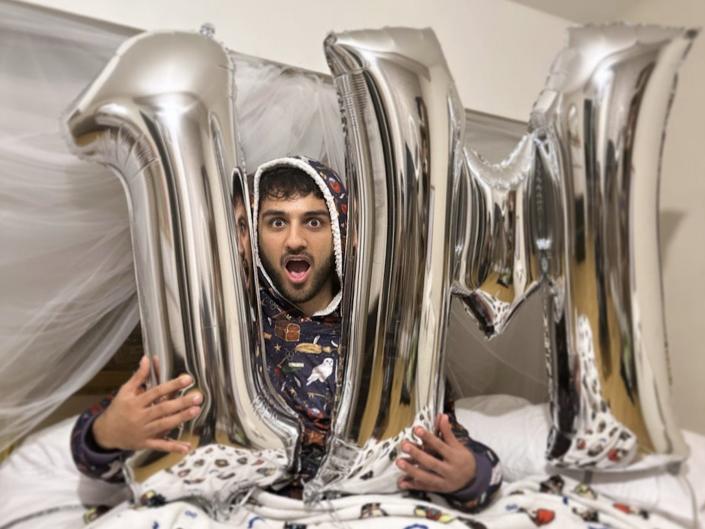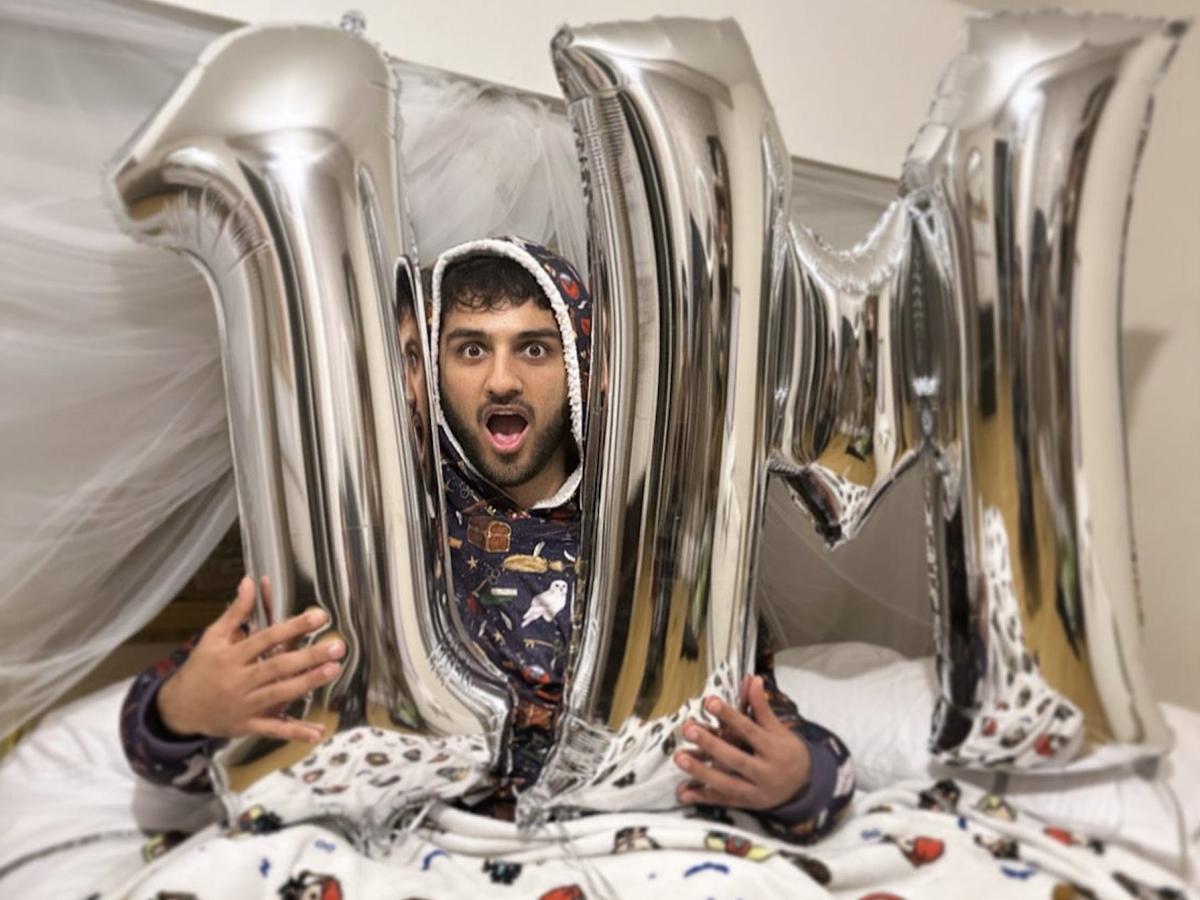
-
Shabaz Ali is a chemistry teacher who has gained 1.5 million TikTok followers by making fun of the rich.
-
Ali has seen poverty in schools and wants influencers to be “more responsible” in the recession.
-
He said influencer culture is “dying out” because people don’t want wealth being flaunted online.
Shabaz Ali is a TikToker who gained 1.5 million followers by fooling rich people.
Ali, who goes by the “Shabaz Says” handle on social media, may have appeared on your TikTok feed, lying in bed, wearing colorful hoodies and insulting viewers for being a “povvo” – British slang for someone who is poor .
His audience knows him as “the CEO of ‘I’m rich, you’re poor'”, a series of videos in which Ali satirizes the lavish lifestyle some people share online. His goal is to show how detached they are from the millions of people who suffer from rising prices.
Ali’s videos could show him reacting with disgust to an influencer who buys a $550 dog collar from Gucci, or another who claims to spend $2,000 a month on designer glass bottled water from Norway.
The self-proclaimed “Robin Hood” is actually a 30-year-old secondary school chemistry teacher from Blackburn in northern England who spoke to Insider during a break at school.
“Just before I got shut down, one of my students said, ‘Oh my god sir, you must download this TikTok app, it’s really funny and you’ll love it,'” he said. “During lockdown we had nothing else to do, so it just became something where I shot videos.”
After appearing in a reality TV show named “The Circle” in 2021, Ali decided to put more effort into his social media accounts, especially TikTok. His laid-back style earned him nearly 500,000 followers by 2022, but it wasn’t until he started responding to rich people that the number soared above 1 million.
“It started with the idea that as a rich person you have so much time that you can go out and make 17 different flavors of ice cream because you don’t have to go to work, you don’t have to have a job,” he said.
“I think we need to take more responsibility, especially in the current climate. Don’t be so tone-deaf. In the crisis of the cost of living, there are people without food and then there are people who overindulge.”
Ali saw students living in poverty in the schools where he taught
Ali’s videos are partly inspired by his experiences as a teacher and seeing the effects of government cuts on students.
“I worked at a school in Bolton and it was absolutely necessary. Some of the children weren’t eating,” he said, adding that some wouldn’t get a hot meal at the weekend.
Ali disliked the influencer focus of apps like Instagram and felt TikTok was the right place to address such issues in a more comical way.
In one video, he responds to a woman who paid £70 ($82) for Dior designer biscuits.
Ali’s fans even include figures like singer Lily Allen – and some have offered to pay him to promote their lifestyle on his page.
‘The age of the influencer is on its way out’
Ali’s videos reflect a sense among some that influencers are losing influence with the public.
Some have begun “de-influencing,” or interrogating the hype surrounding cult products in an effort to appear more authentic and believable.
“The influencer era is on the wane,” said Ali. “We don’t want to be bombarded with images of beautiful people doing beautiful things with their beautiful money.”
He does not intend to become an influencer himself and will not quit his job as a teacher anytime soon. Despite getting 177 million views on TikTok in December, he says he only earned £28 ($33).
Ali is now exploring more lucrative social media platforms, which he says are already making more money.
Read the original article on Business Insider

